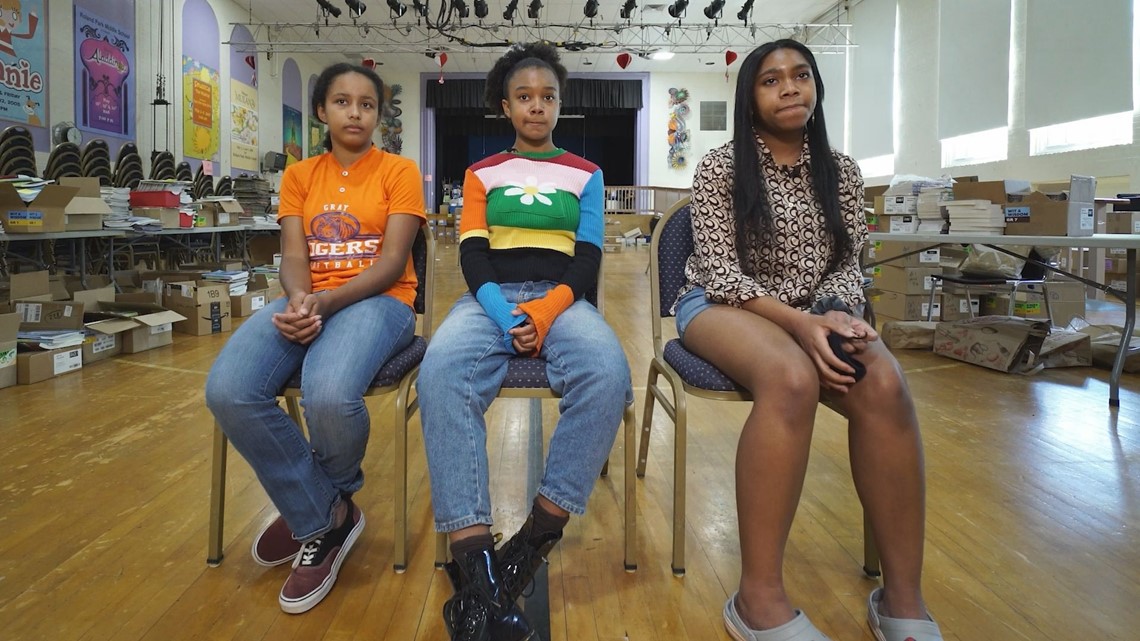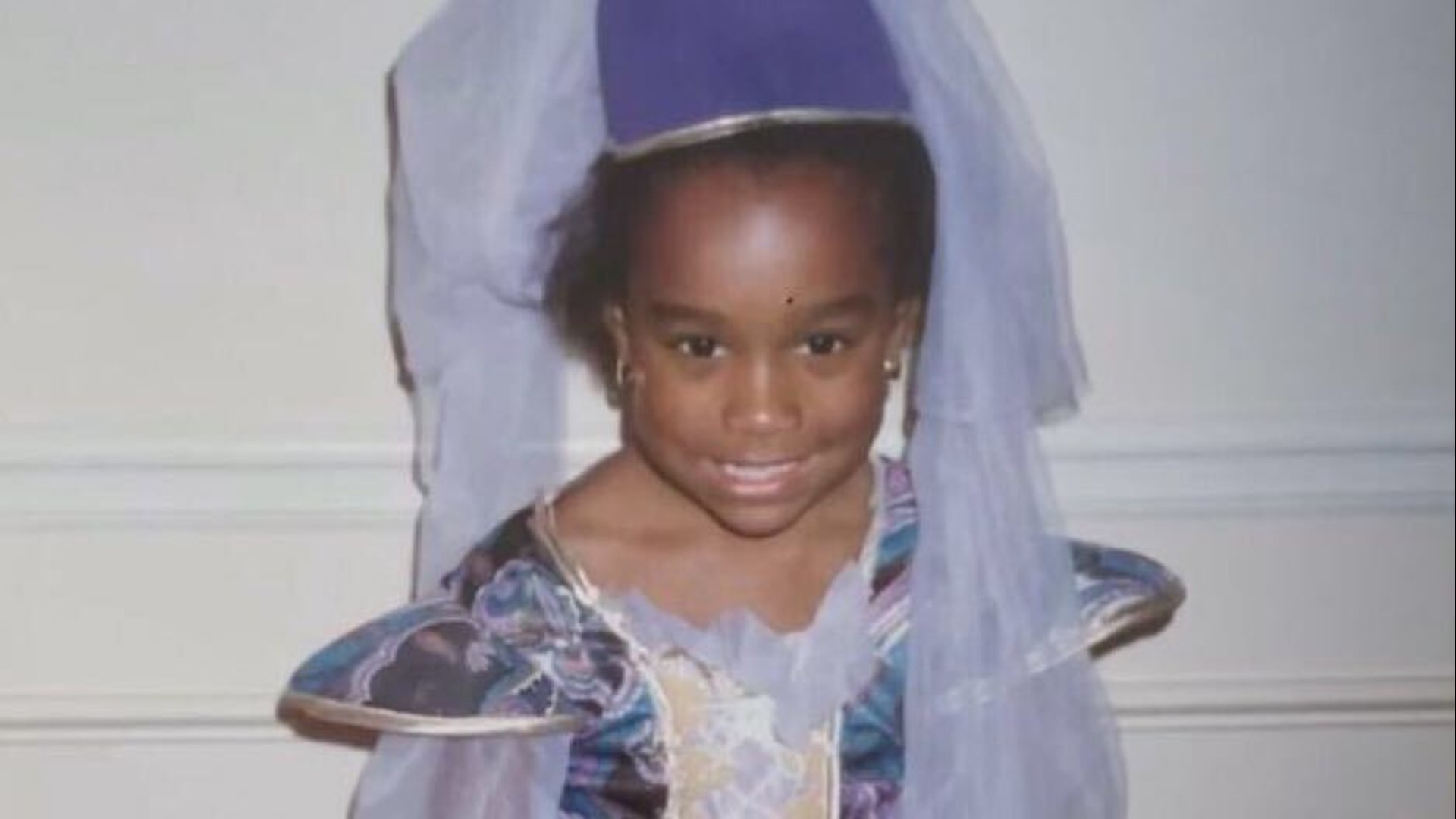BALTIMORE — Editor's note: This story contains content about death by suicide involving children. If you or someone you know is struggling with thoughts of suicide, help is available. Call the National Suicide Prevention Line at 1-800-273-8255.
Suicide rates among Black children have continued to rise for decades across the nation. However, data shows that's not the case in Baltimore, Maryland. Charlotte Harleston, Carlene Williams, and London Connolly are part of a team that helps Baltimore psychologists develop suicide prevention programming.
All three students were entering the 9th grade in the city when they sat down with a team of investigative journalists from 11Alive for an honest discussion about why kids their age are dealing with thoughts of suicide.
In the series "A Different Cry," Charlotte, Carlene, and London discussed their emotions about race, mental health, and about how they felt no one is listening to them. 11Alive decided to create another online story to feature more of their interview to give additional insight on what they are dealing with. Here is more of that conversation.


Editor’s note: quotes have been edited for length and clarity.
'Humor to cope'
According to the young teens, suicide is discussed often, and openly, but in a manner that wouldn’t raise too many flags. The coping mechanism often times is humor.
London: We can often, like, joke with each other on social media [and] in-person about suicide but it's often not talked about seriously because I feel like nowadays, in my experience, we use humor to cope with trauma and to cope with depression a lot.
Charlotte: I think that it's sort of a way of saying like, ‘This is a problem, but I can't talk about it seriously because it hurts a lot to talk about seriously, because someone I know has committed suicide or attempted suicide.’ It's not talked about enough in a serious manner with adults
Carlene: I'll often see those people, like, joking about it and jokingly telling me about things in their life that are causing them to have depression or wanting to, you know, harm themselves. They will do things… like cutting or things like that, and they'll joke about it. But it's something that's actually happening, and it's serious.
'There's all this pressure to be a grown up'
The young people we spoke with said much of the strain being put on Black youth comes from pressure to be more advanced than they’re ready to be. The American Psychological Association (AMA) released a study in 2014 pointing towards similar social perception trends, when it came to young Black boys in America.
Charlotte: I mean, the school system is a mess in general, but there's a lot of stress involved with school, especially like 5th and 6th grade - 7th grade. There's a lot of pressure being put on kids, the kids in that age group, which it's really sad. Like one of the things that people often will say, mostly to like 7th graders and sometimes 6th or 7th graders and sometimes 3rd graders apparently is like, you know, you're almost an adult, you're almost grown up. You have to start acting like it. You have like there's all this pressure to be a grown up, these responsibilities. You're getting so much more responsibility and then none of this like trust back from it.
London: Specifically in the Black community, children are expected to grow up fast or they're treated as grown-ups. They're being suspended at higher rates, and they're often pushed to the side or treated like they can deal with more, instead of being given resources to deal with their mental health in a healthy way.
Carlene: I also feel like the younger generation feels pressured to kind of grow up too fast… especially because of social media. You'll look and you'll see teenagers that dress a certain way, look a certain way, and then somebody my age or younger will be like, I should do that, because that's cool. That's what people like. And when you're a kid, you don't mentally have the experience, the knowledge, the capacity to do more teenager or adult things.
'You don't feel like you have a place to belong'
Some Black youth feel they have a different experience in the school system than their peers. According to U.S. Department of Education data, at least 37% of Black students have reported being bullied on race, English Proficiency, or disability.
Charlotte: I learned this at a very young age. My elementary school never talked about race at all, and I feel like race isn't communicated well in schools.
London: Growing up in the public school system where, by default, even here, you as a Black child… you are seen as unruly. If you do one thing, it is magnified. You could be suspended. You could have the cops called on you. Seeing those things on the news – I go to school the next day and I'm like, I need to adjust myself. I need to become more presentable. Like even in a way I hate to say I need to be more “white”, like in the way that other people perceive whiteness. I feel kind of constrained. And then it's also so sad to be in those classes and to see myself change so much in class so that I can be heard and so that I can be given the same opportunities as everybody else. And then seeing my fellow Black classmates next to me, being treated as differently because they act differently and they don't want to change themselves for their white teachers who just want to see them be different.
Carlene: I don't belong in this crowd, I don't belong in that crowd. If I act a certain way around white people, I will be labeled as ghetto. If I act the same way around Black people I'll be labeled as trying to act white or something like that. You don't feel like you have a place to belong or to truly be yourself.

